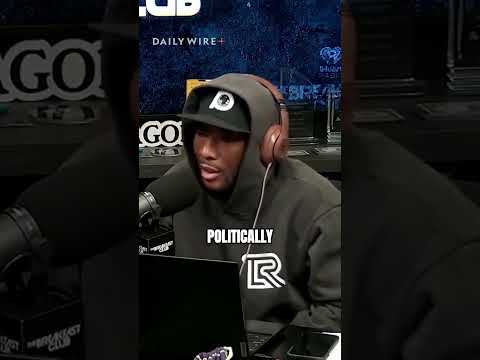In recent political discussions, a notable observation has emerged regarding the hypocrisy within the Democratic Party. Prominent figures, such as Charlemagne the God, have pointed out a glaring inconsistency in how both parties are perceived when it comes to morality and adherence to the established political process. The prevalent narrative that Republicans are the sole norm violators is increasingly challenged as Democrats themselves have engaged in questionable practices. This discrepancy warrants a closer examination, as it not only sheds light on the moral high ground, which seems more like a steep and slippery slope, but also reveals the broader implications of political behavior.
Democrats have recently showcased their ability to bend the rules to their will. Take, for instance, Joe Biden’s decision to dismiss the primary process when he stepped down from running again. This maneuver raises eyebrows and prompts a crucial question: If the party truly represents the people, why disregard the very processes designed to ensure democratic participation? By circumventing these processes, Democrats highlight their willingness to prioritize political convenience over party integrity. Such actions could leave many voters questioning the authenticity of the party’s commitment to democratic principles.
Furthermore, Biden’s decision to pardon his son has ignited discussions on the nature of power and privilege within the political class. It appears that actions like this send a clear message — that some politicians can afford to play by different rules. This trend is not just a matter of double standards but also signals a troubling message to the American public: if you hold political power, exceptions can be made, regardless of the implications for justice or accountability. The notion that the rules apply differently to those in high office is one that resonates with everyday Americans, who often feel disenfranchised by a system that seems rigged in favor of the powerful.
The media also plays a crucial role in shaping these narratives, often neglecting to scrutinize the actions of Democrats with the same vigor applied to their Republican counterparts. When the Republican Party’s actions are highlighted as norm violations, the same lens should be applied when Democrats engage in similar behavior. However, this does not often happen. Instead, the media frequently erects a barrier, protecting the Democrats from the same level of scrutiny. This selective reporting not only clouds the public’s perception but also raises questions about the integrity of journalism in political discourse.
Strikingly, while both parties have demonstrated the ability to maneuver through the political landscape with questionable tactics, the disparity in how each is viewed publicly is stark. This situation reveals the greater hypocrisy within the system — that political accountability seems to wane when faced with party loyalty. It serves as a reminder that political will and courage can lead to bending the rules, often at the expense of justice and transparent governance. Voters would do well to remain vigilant and discerning, recognizing that the moral high ground some claim is often just an illusion.
In conclusion, it is time for Democrats to step down from their self-appointed pedestal and recognize the flawed nature of their stance. The notion that one party holds exclusive rights to virtue is not only misleading but dangerous. Both Republicans and Democrats have their shortcomings, and it is essential for the American public to demand accountability from all elected officials, regardless of their affiliation. As the political landscape evolves, the focus should shift from party loyalty to a commitment to principle, ensuring that the actions of all politicians reflect the values they espouse. It’s about time to call out the hypocrisy and remind both parties that Americans are watching—not just for entertainment but for genuine leadership and integrity.



